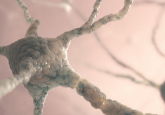Alzheimer’s drug shows promise in slowing cognitive decline

An experimental Alzheimer’s drug, called lecanemab, has successfully met its primary endpoints in a Phase III trial, slowing cognitive decline and improving daily activities.
Nearly 50 million people worldwide are living with Alzheimer’s, and as populations age, this number continues to increase. It is therefore vital that we develop effective treatments; however, the Alzheimer’s treatment landscape is one littered with failed drugs. This may be about to change with a new experimental drug, developed by Eisai (Tokyo, Japan) and Biogen (MA, USA), showing historically positive results in a large Phase III trial called CLARITY-AD.
The trial included 1795 people with early-stage Alzheimer’s and mild cognitive impairment due to Alzheimer’s, who received a bi-weekly infusion of either lecanemab or a placebo. Lecanemab slowed cognitive decline by 27% compared with the placebo over 18 months, and improved recipients’ abilities to carry out daily activities.
Lecanemab is a monoclonal antibody that targets amyloid-beta clumps and signals to the immune system to clear them out, reducing the build-up of plaques in the brain.
Eisai and Biogen are now seeking US FDA approval via the Accelerated Approval pathway, which provides earlier access to potentially valuable treatments for patients with serious diseases where there is an unmet need and where there is an expectation of clinical benefit. A decision is expected in early January 2023, and they are hoping for full approval and commercialization of the drug in the USA, Europe and Japan by the end of 2023.
This news comes after the controversial US FDA approval of Biogen and Eisai’s other Alzheimer’s drug aducanumab, which has since been limited to use in individuals involved in clinical trials.
The full results from the trial will be presented on November 29, 2022, at the Clinical Trials on Alzheimer’s Congress (November 29–2 December 2022; CA, USA).
Speaking to the Science Media Centre, John Hardy (University College London; UK) commented, “The [results] are truly encouraging and look like the first truly positive mechanistic trial results in Alzheimer’s disease. It will be great to see the full results in late November and even better when a peer reviewed paper is published. The results look modest but real.”
You might also like:





